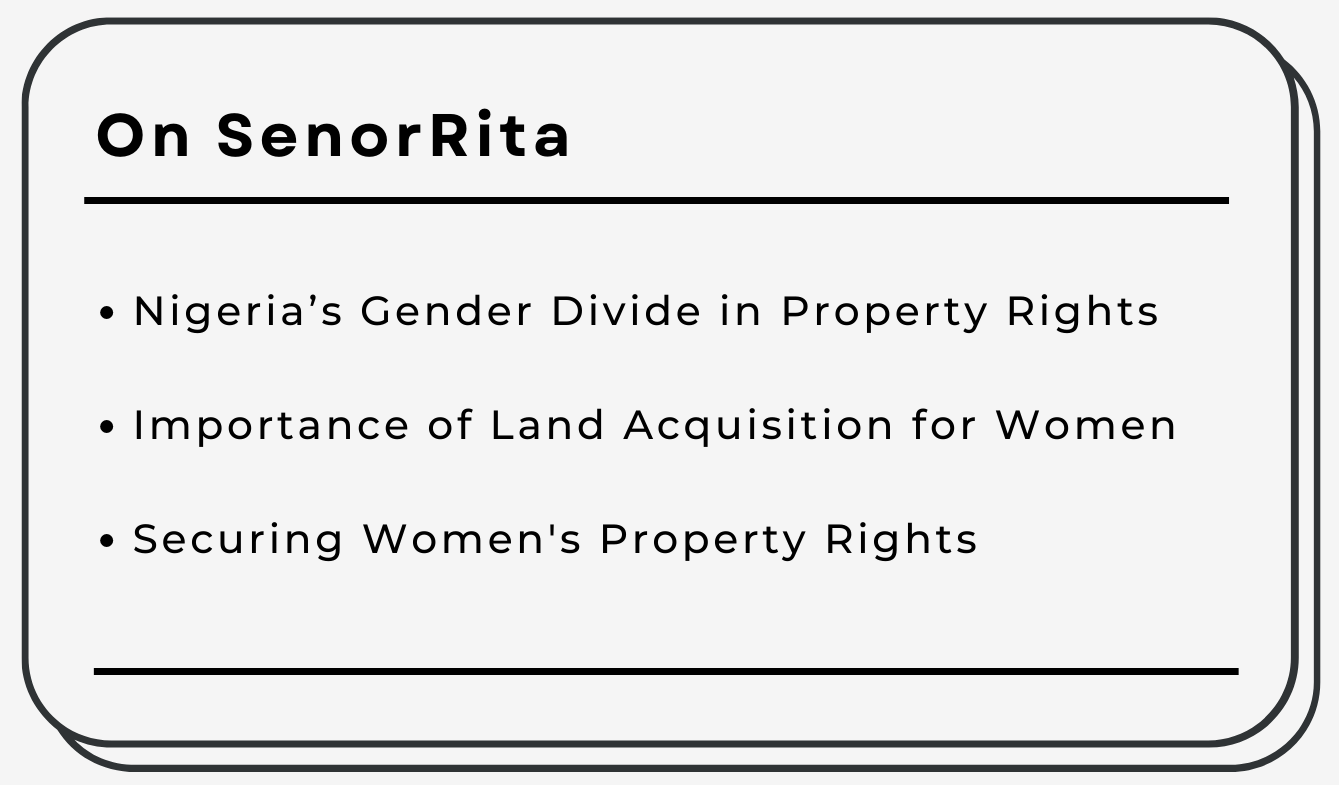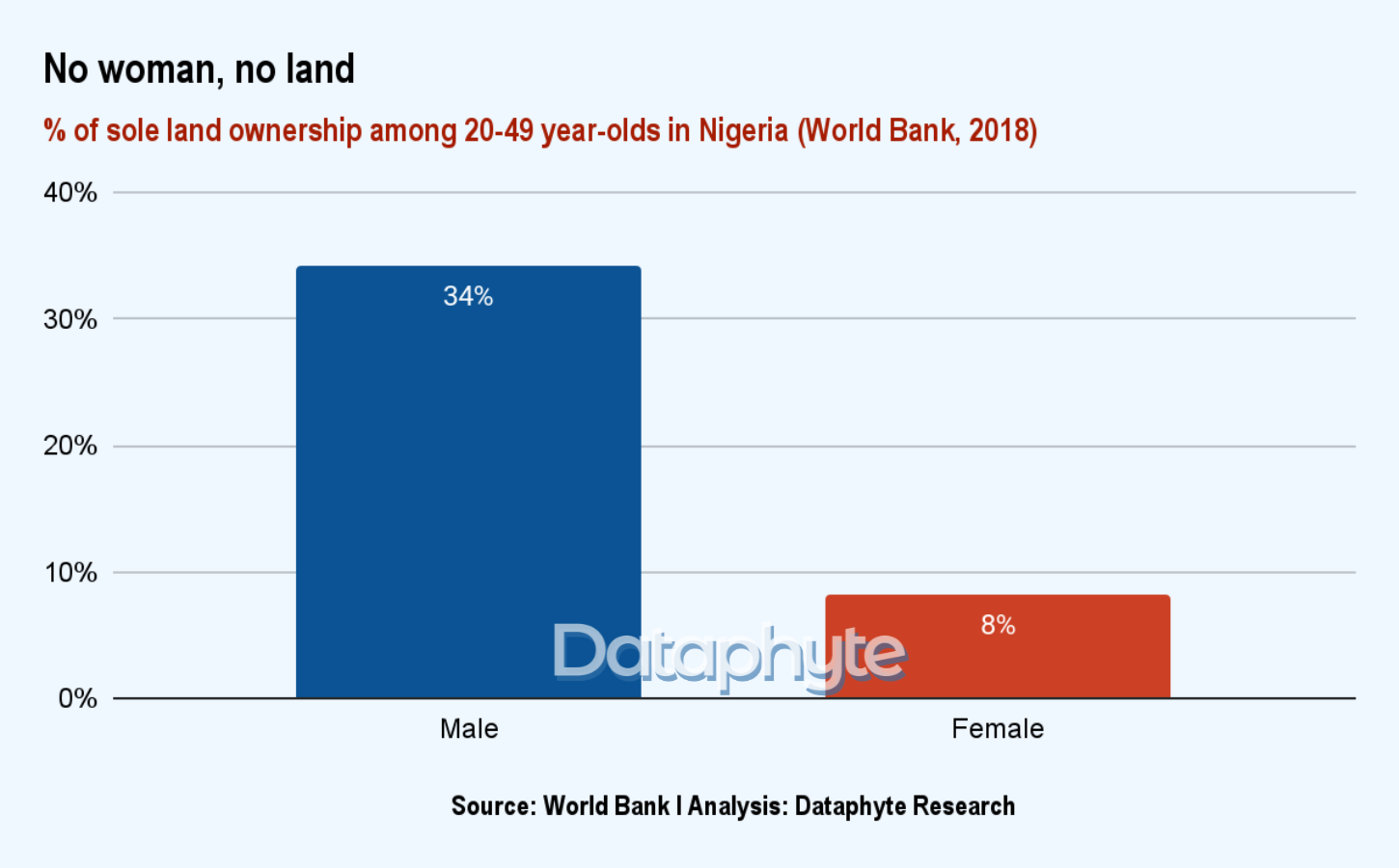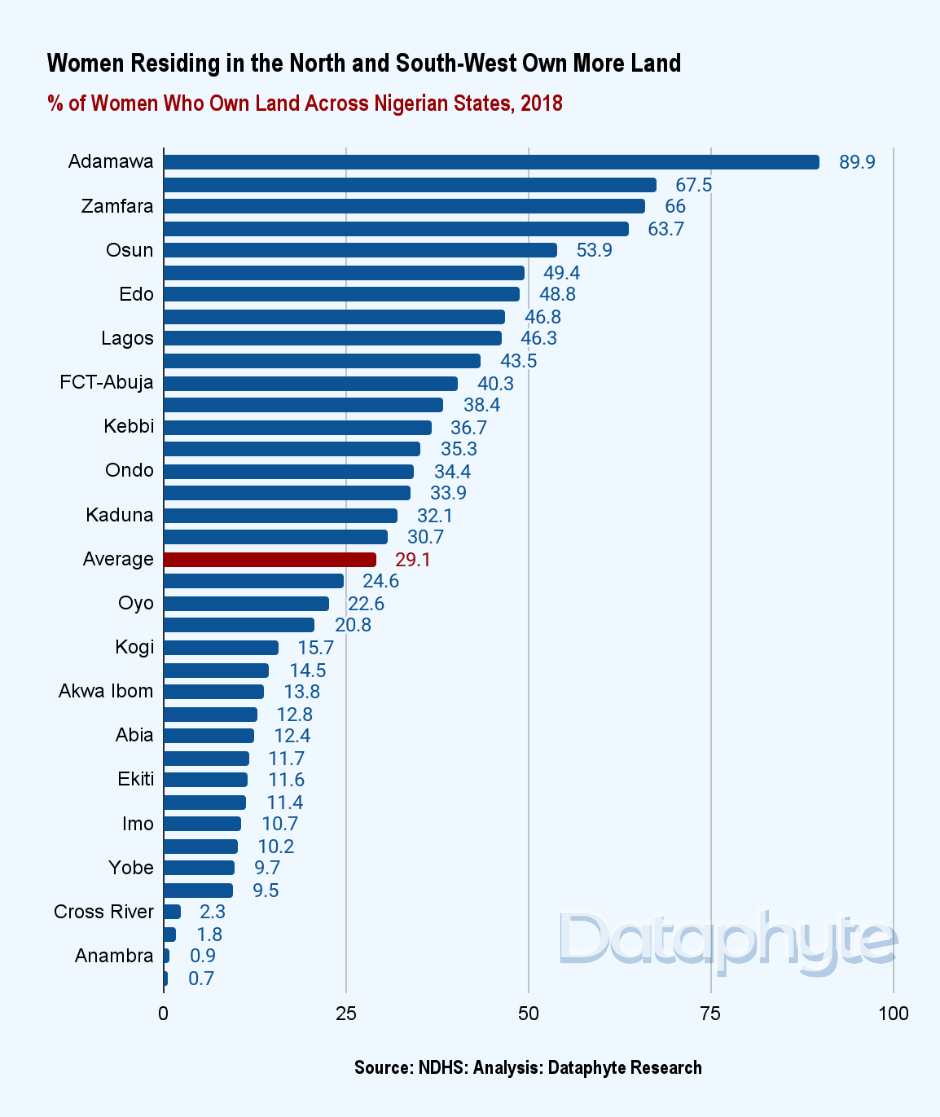World Bank data has revealed that more Nigerian men have access to landed properties compared to women. According to the research, this gender disparity has made it difficult for women and girls to own and inherit land, which drives economic prosperity.
In Nigeria, only 8.2% of women aged 20-49 solely own land, compared with 34.2% of men according to World Bank research into gender disparities in property ownership in Sub-Saharan Africa.
The ability to own and inherit land is an important driver of economic prosperity. Such a big gap between men and women in Nigeria regarding land ownership suggests systemic economic disparities that will affect efforts at improving gender equality.
For instance, in different parts of Nigeria, especially the South-East, women have limited access to owning land. Land acquisition is more common among men.
Many still believe that women should not inherit ancestral family land as they are expected to leave the community when they get married, while men carry on the family heritage.
There is also the fear that husbands will gain access to a family's land through marriage if women are allowed to own land.
Meanwhile, data from the Nigeria Demographic and Health Survey (NDHS,2018) shows that most women living in the Northern parts of Nigeria own landed properties.
Women living in Adamawa, Kano, Zamfara and Sokoto have the highest rate of land acquisition in Nigeria. Also, women residing in some southern parts of Nigeria are above average.
On average, states in the South-Eastern part of Nigeria have the lowest proportion of women who own landed properties.
This state of affairs goes against Sections 43 and 44 of the Nigerian constitution which make provision for every Nigerian man and woman to acquire and own immovable properties in any part of the country.
While other developing countries continue to improve economic opportunities for women, inheritance laws remain strongly biased against women and girls in many societies, including Nigeria.
For instance, parental bequests of material wealth and human capital investments represent central forms of intergenerational transfers that affect long-term development in far-reaching ways.
At low levels of development, land is a key asset and an essential source of livelihood. Unsurprisingly, societies have long developed rules to govern how land is transferred across generations. Women in many developing countries face legal barriers preventing them from inheriting property.
Importance of Land Acquisition for Women
A study shows that property rights are key to economic development. When women have access to assets (especially those they are already the primary caretakers of), communities thrive. It increases their ability to start and grow businesses by giving them the collateral they need to secure credit.
Also, it allows them to invest in their families and secure the future of their children. It ensures that they can live with agency and dignity.
To push for equality for women, the former head of United Nations Women, Michelle Bachelet advised that, "When women are empowered and can claim their rights and access to land, leadership, opportunities and choices, economies grow, food security is enhanced and prospects are improved for current and future generations."
Also, Anna Wellenstein, World Bank Director for Sustainable Development in East Asia and the Pacific, noted that land acquisition is important for women’s economic empowerment that leverages their financial stability.
She said, “Secure land rights are essential for women’s economic empowerment and creating incentives for investment, providing an asset that can be leveraged for agriculture or business development, and offering a solid foundation for financial stability,”
“Improving women’s access to – and control over – economic resources also has a positive effect on a range of development goals, including poverty reduction and economic growth. We are committed to working with partners to close the gap and make land rights for women a reality globally.”
Securing Women's Property Rights
One of the most significant benefits of women owning property is the financial independence it offers. Property is a tangible asset that often appreciates over time, providing a sense of security and stability.
In many regions, property ownership comes with specific legal protections and rights that provide security and peace of mind, particularly for women. It gives women control over a significant financial asset, enhancing their decision-making power.
Although sections 43 and 44 of the Nigerian constitution make provision for every Nigerian man and woman to acquire and own immovable properties in any part of the country, these rights need to be upheld so that women can enjoy their rights to own property.
In cases of joint ownership, women should be protected, especially in matters of inheritance or in the unfortunate event of a spouse’s demise. This ensures that women are not left vulnerable and have a claim to the property.
Culture recognises human rights by identifying notions of human feelings, empathy, intuitions and concerns toward specific groups of others. However, different customs and traditions, which reflect various cultures across the world, have to a large extent affected the promotion and protection of women’s rights.
Culture is mostly used as a tool for justifying the violations of women’s rights especially in the areas of marriage and property, reflecting deep-seated patriarchal structures and harmful gender stereotypes.
All hindering factors to women’s land rights should be looked into and addressed. Women who own property can protect their wealth from the eroding effects of inflation, ensuring long-term financial security for themselves and their children.
Thanks for reading this edition of SenorRita. It was written by Kafilat Taiwo and edited by Joachim MacEbong.






